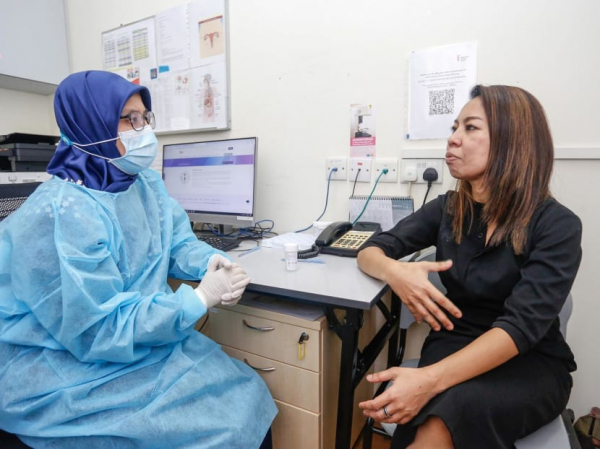Navigating Cancer Screening: Understanding Frequency and Limitations of Tumor Marker Tests

Empowering Cancer Awareness: Navigating Screening and Early Detection in Singapore
In Singapore, the stark reality of cancer's impact is evident, with an average of 46 daily diagnoses and 16 daily fatalities recorded between 2017 and 2021. The Singapore Cancer Society underscores that one in four individuals may confront cancer in their lifetime, highlighting the imperative for proactive screening initiatives. Awareness of national screening programs and guidelines for prevalent cancers like colorectal, breast, and cervical cancers is crucial for early detection.
However, amid the plethora of screening options, understanding which tests are essential can be daunting. Tumour-marker tests, while available, may not always provide definitive results and can inflate screening costs. Consequently, discerning the most effective screening strategies requires informed decision-making.
Emphasizing the pivotal role of early detection, medical professionals stress the importance of regular screenings. Despite common misconceptions about cancer susceptibility, individuals like 41-year-old Amaliah Othaman have witnessed the life-saving impact of screening. Amaliah's proactive approach to health led her to undergo a Pap test, which ultimately unveiled Stage 1 cervical cancer, despite her absence of symptoms.
Amaliah's journey serves as a poignant reminder of the criticality of regular screenings, even for those who feel healthy. Her experience underscores the potential for early detection to mitigate the severity of cancer diagnoses and improve treatment outcomes. Encouraged by her survival story, Amaliah advocates for regular screenings among her peers, emphasizing the importance of proactive healthcare measures.
As Singapore continues its battle against cancer, prioritizing awareness, education, and accessible screening programs remains paramount. By fostering a culture of proactive health management and early detection, individuals can navigate the complexities of cancer screening with confidence, ultimately enhancing their chances of survival and well-being.
Nurturing Wellness: Understanding Cancer Screening Guidelines in Singapore
Even in its earliest stages, cancer treatment can be formidable, often necessitating major surgical interventions like hysterectomy, as shared by Amaliah. However, the potential for early detection through cancer screening offers a ray of hope, enabling prompt intervention before symptoms manifest.
Singapore's Screen for Life program stands as a beacon of support, providing eligible citizens and residents with subsidized screenings to facilitate timely detection. Understanding the recommended screening protocols for common cancers is crucial for maximizing the program's benefits:
• Colorectal Cancer: Individuals aged 50 and above are advised to undergo annual faecal immunochemical tests, which involve the collection of a small stool sample for analysis.
• Breast Cancer: Women aged 50 and above should undergo mammograms once every two years. Those aged 40 to 49 may also opt for annual mammograms if recommended by their healthcare provider.
• Cervical Cancer: Women aged 25 to 29 who have ever been sexually active are advised to undergo Pap smears every three years. For those aged 30 and above, an HPV test is recommended every five years.
Adhering to these screening guidelines empowers individuals to take proactive steps towards safeguarding their health and well-being. By prioritizing regular screenings, individuals can detect cancer at its earliest stages, facilitating more effective treatment options and ultimately improving outcomes.
As Singapore continues to advocate for preventive healthcare measures, embracing routine screenings is paramount. Through collective efforts and individual commitment to proactive health management, we can foster a culture of wellness and resilience in the fight against cancer.
In conclusion, understanding and adhering to Singapore's cancer screening guidelines are essential steps in the journey towards proactive health management. The Screen for Life program provides invaluable support by offering subsidized screenings, enabling early detection and intervention. By following recommended protocols for colorectal, breast, and cervical cancers, individuals can empower themselves to detect cancer at its earliest stages, enhancing the effectiveness of treatment and improving overall outcomes. As Singapore continues to prioritize preventive healthcare initiatives, embracing routine screenings is a vital component of fostering a culture of wellness and resilience. Together, through collective efforts and individual commitment to proactive health practices, we can strive towards a future where cancer diagnoses are detected early, treated effectively, and lives are saved.


